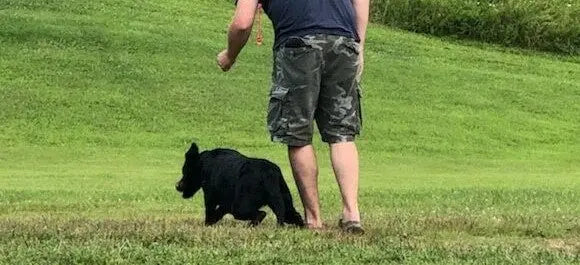Your Cart is Empty
free shipping on orders above $99
Menu
-
- Shop
- Product Support
- Media
- Product Registration
- About Us
-
- 1-877-245-9113
- Login
-
United States (USD $)

free shipping on orders above $99

Summer Dog Training
June 06, 2019 4 min read
by Marty Robinson
For many of us hunters who train our own dogs, training in the hot summer months can be challenging. The number one concern when training during any season of the year should be dog safety. However, hot temperatures make this more challenging and concerning, not to mention increased insects, snakes, and additional stress while traveling. Here are a few tactics we use to keep summer dog training safe, fun, and productive. Heat
Heat
To help keep our furry hunting companions safe during the heat of the summer, we focus on training times and the local area weather. Training times need to be early in the morning or later in the evening as the sun is coming up or going down. This point is pretty obvious, as the dogs don’t want to be active in the heat of the day any more than you do. We also utilize shorter training sessions and train both morning and evening during this time. If the heat is just unavoidable, we still try to get out before the peak afternoon heat and focus on water work. The dogs love it and it helps cool them down just like us as humans enjoying a dip in a swimming pool. This photo shows our black lab Gemma charging hard during an HRC water series hunt test in Virginia - photo by Schellenbach Photography & Design.
Hydration
Another key to training during the heat is to make certain each dog stays hydrated. We keep a hefty supply of water on our truck and make it available to the dogs at all times when we are stationary in the field. We also utilize battery-powered Owens Products dog box cooling fans on each kennel to keep air circulating and help kill the heat while awaiting their turn to hit the field. Simple "job site" fans available at large home improvement stores work great as well. Sometimes during travel to hunt tests in warmer months, we have one certain little gal that does not like to drink enough water. Keeping her hydrated became very challenging. A friend who has trained dogs for many years taught us a valuable trick to somewhat force her to intake more water – we pour her dry food in her bowl, then pour water over the dry food and let her eat immediately. She eats rather quickly anyway, so this method causes her to drink the water while she’s eating and the dry food doesn’t have time to get soggy.
Insects & Snakes
Insects and snakes are another dreaded aspect of summer training. Ticks are among the most common insects that create a hazard for our dogs and numerous products are available to help prevent these insects. We use Frontline Plus Flea & Tick Preventative. Even with the use of these products, take time to check your dogs each and every time you return from training. It is also a good idea to keep an antihistamine like Benadryl in your truck or gear bag in case of a bee sting, wasp sting, or snake bite. Though an antihistamine is by no means a cure for a snake bite, it may aid in giving the dog some relief while being taken to the vet. Immediate attention from a veterinarian is needed for any snake bite. In this dreaded situation, try to identify the snake to give the vet a quicker course of action in treating your dog. However, do not place yourself or the dog or back in harm’s way when trying to identify the snake. Don’t risk getting bitten yourself – then both of you need medical attention.
Eye Protection
An often-overlooked hazard faced during summer training is foreign objects entering our dog’s eyes, which can lead to infections. We often train in hay fields or pastures and the seeds of taller grasses are notorious for getting in a dog’s eyes. It only takes a few seconds to look in their eyes and around the eyelids when loading your dog back up or taking them in from a training session. Remove any foreign objects you see immediately. They won’t like it and it may be uncomfortable, but a few seconds of discomfort now are much preferred over the prolonged discomfort of a scratch or, worse, an infection.
Wrap-Up
In closing, here is a simple rule to follow: if these uncomfortable summer conditions are bothering you, they are probably bothering your dog as well. This obviously applies to hot temperatures, but also water intake, biting insects, and tall vegetation. If any of these conditions are not ideal, it’s probably better to postpone our training until a different time to keep both our dogs and us safe. Dogs that are happy during training will perform better and retain the things we are trying to teach them, and those skills will easily transfer over to the duck blind when summer finally gives way to fall hunting season.
Subscribe
Sign up to get the latest on sales, new releases and more …
